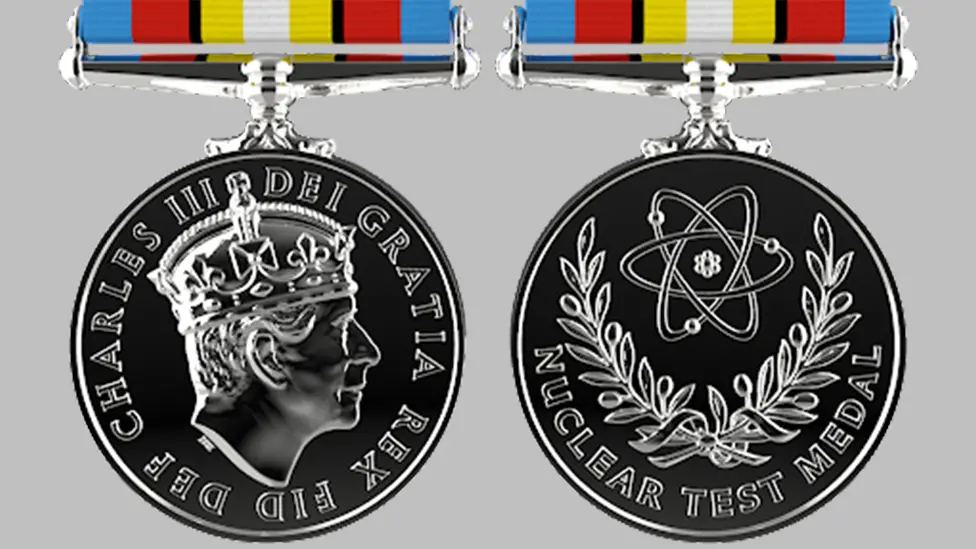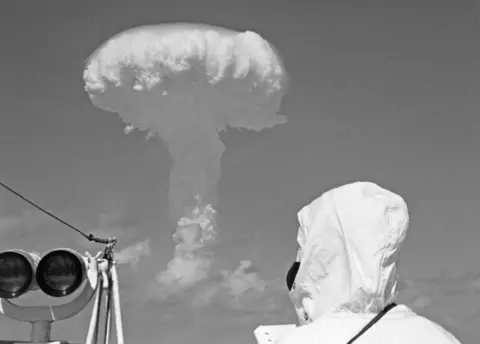Nuclear test medal: UK veterans to receive recognition after years-long campaign
 Cabinet Office
Cabinet OfficeVeterans of Britain's nuclear test programme are to receive a newly designed medal in time for Remembrance Day, the government says.
The Nuclear Test Medal has been released 70 years after the first test. About 22,000 people are eligible.
Downing Street agreed to its creation in November after years of campaigning by veterans and charities.
Alan Owen, founder of the Labrats charity, said the design was a "massive step" in the recognition of veterans.
About 40,000 British personnel took part in the testing of atomic and hydrogen bombs in the 1950s and 1960s, and around 2,000 are believed to be still alive. The medal can be awarded posthumously to a veteran's legal next of kin.
The release of the design follows a years-long fight for recognition by veterans and their families, who said exposure to nuclear tests had caused cancer and premature deaths among thousands of people who took part, as well as causing health problems for their families.
The first medals will be available in time for Remembrance Sunday on 12 November, the government said. However, they will not be issued automatically - veterans and relatives wanting posthumous recognition will need to apply, and survivors will be prioritised over next of kin.
Downing Street said the medal commemorated contributions by members of the armed forces, scientists and local employees from the UK, Australia, New Zealand, Fiji and Kiribati.
Defence Secretary Ben Wallace said he was delighted to recognise veterans' "invaluable contribution to the safety and security of the UK".
The design features an atom surrounded by olive branches and bears the words "Nuclear Test Medal". The obverse features King Charles.
 Getty Images
Getty ImagesMr Owen, whose veteran father died aged 52 in 1994, told the BBC the design was "fantastic".
"We're working with the Office of Veteran Affairs, and we're trying to get the first batch to receive the award to have them given in person by the King," he said.
Just as important, he added, was for the 30 to 50 nuclear test veterans marching on Remembrance Sunday to do so "with the medal on their chest".
The government had previously refused calls for official recognition, saying that participation in the tests fell "outside the criteria for medallic recognition".
The Ministry of Defence said that three large studies of nuclear test veterans "found no valid evidence to link participation in these tests to ill health".
Most tests involving British personnel were in the Pacific - the biggest being Operation Grapple, during which about 22,000 people oversaw the exploding of bombs in 1957.
Maralinga, in South Australia, saw the first test launches of atomic weapons from aircraft in 1962.
The qualifying period for the medal is defined as "service of any length".
In November, Prime Minister Rishi Sunak said the medals would be "an enduring symbol of our country's gratitude" for those involved in the test programme.
"Their commitment and service has preserved peace for the past 70 years," he said. "It is only right their contribution to our safety, freedom and way of life is appropriately recognised with this honour."
Eligible veterans, civilians and their next of kin can now submit an application to the Ministry of Defence.
